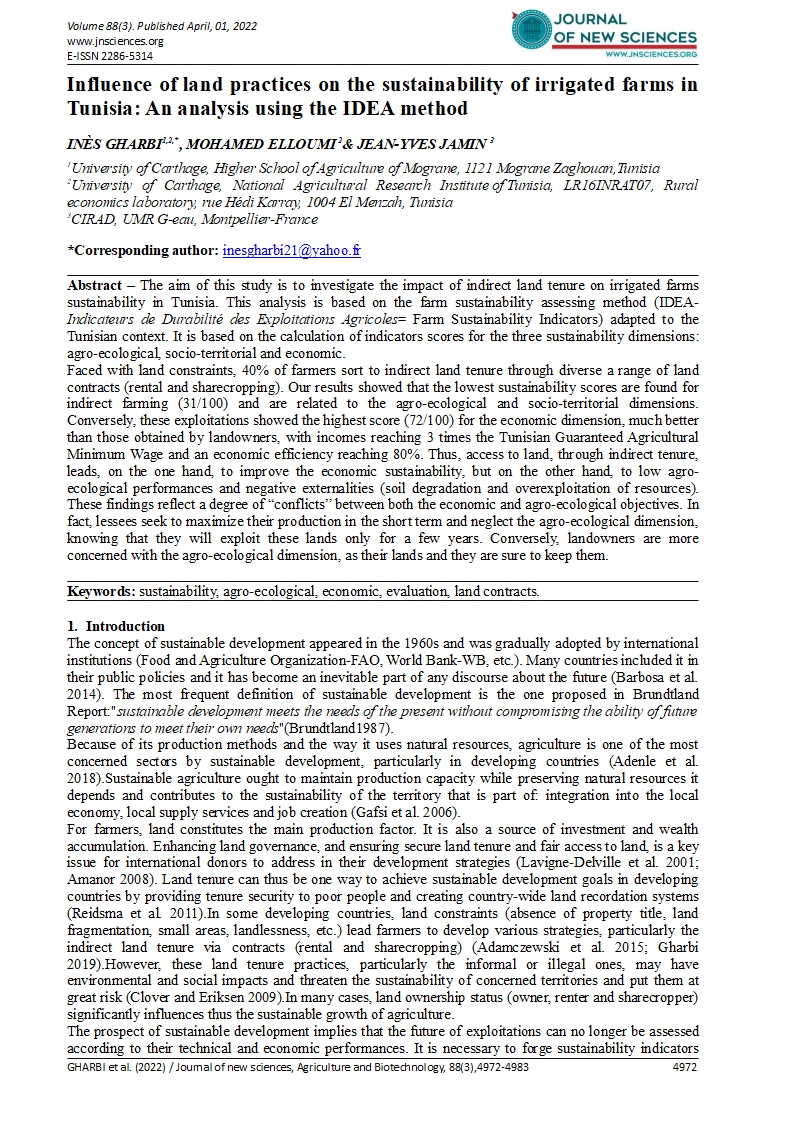

- Category: Volume 88
- Hits: 2672
Influence of land practices on the sustainability of irrigated farms in Tunisia: An analysis using the IDEA method
INÈS GHARBI1,2
MOHAMED ELLOUMI 2
JEAN-YVES JAMIN 3
1University of Carthage, Higher School of Agriculture of Mograne, 1121 Mograne Zaghouan,Tunisia
2University of Carthage, National Agricultural Research Institute of Tunisia, LR16INRAT07, Rural economics laboratory, rue Hédi Karray, 1004 El Menzah, Tunisia
3CIRAD, UMR G-eau, Montpellier-France
DOI: https://doi.org/10.55416/sunb.jns01.2204.08803
Abstract – The aim of this study is to investigate the impact of indirect land tenure on irrigated farms sustainability in Tunisia. This analysis is based on the farm sustainability assessing method (IDEA-Indicateurs de Durabilité des Exploitations Agricoles= Farm Sustainability Indicators) adapted to the Tunisian context. It is based on the calculation of indicators scores for the three sustainability dimensions: agro-ecological, socio-territorial and economic.Faced with land constraints, 40% of farmers sort to indirect land tenure through diverse a range of land contracts (rental and sharecropping). Our results showed that the lowest sustainability scores are found for indirect farming (31/100) and are related to the agro-ecological and socio-territorial dimensions. Conversely, these exploitations showed the highest score (72/100) for the economic dimension, much better than those obtained by landowners, with incomes reaching 3 times the Tunisian Guaranteed Agricultural Minimum Wage and an economic efficiency reaching 80%. Thus, access to land, through indirect tenure, leads, on the one hand, to improve the economic sustainability, but on the other hand, to low agro-ecological performances and negative externalities (soil degradation and overexploitation of resources). These findings reflect a degree of “conflicts” between both the economic and agro-ecological objectives. In fact, lessees seek to maximize their production in the short term and neglect the agro-ecological dimension, knowing that they will exploit these lands only for a few years. Conversely, landowners are more concerned with the agro-ecological dimension, as their lands and they are sure to keep them.
Keywords: sustainability, agro-ecological, economic, evaluation, land contracts.

